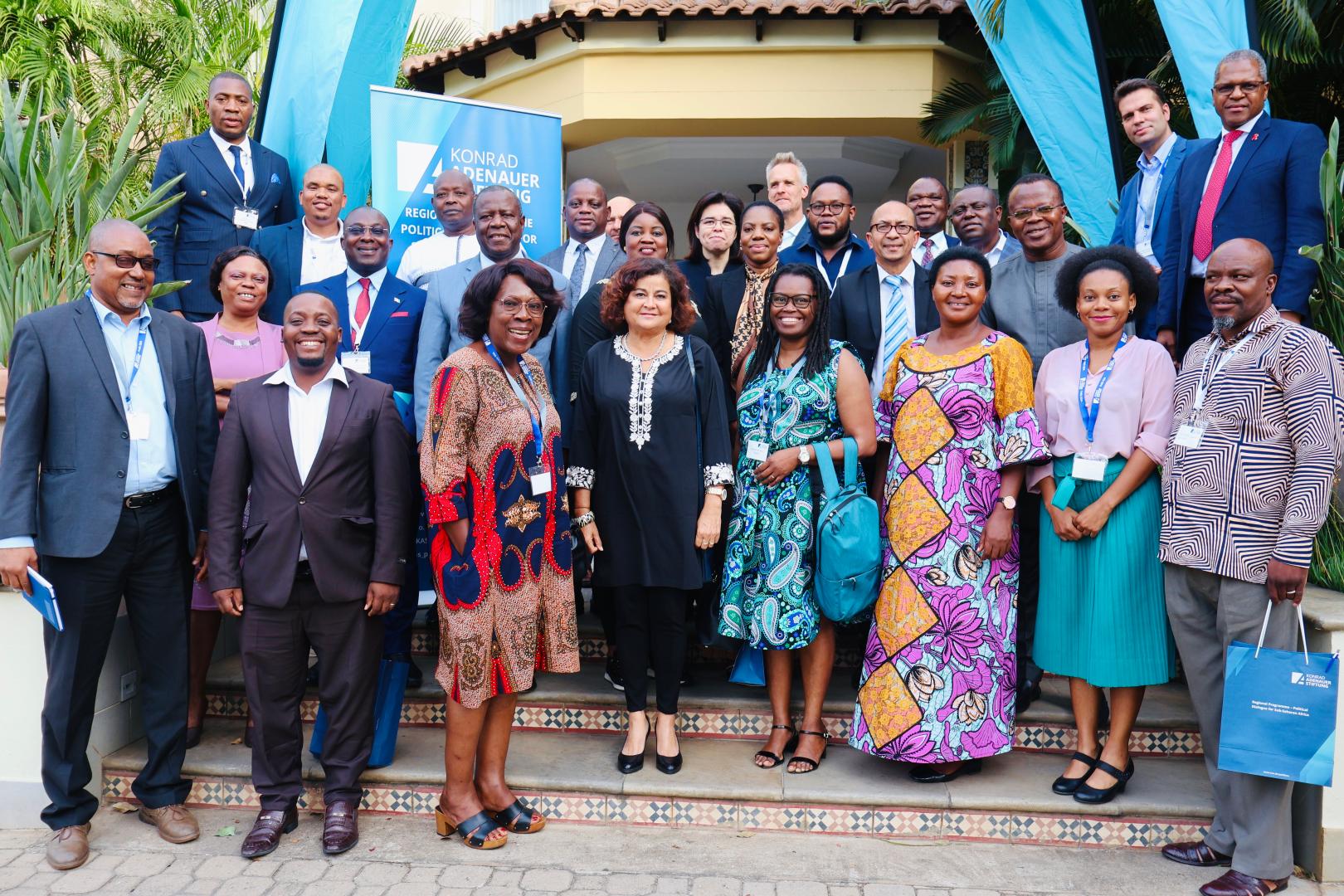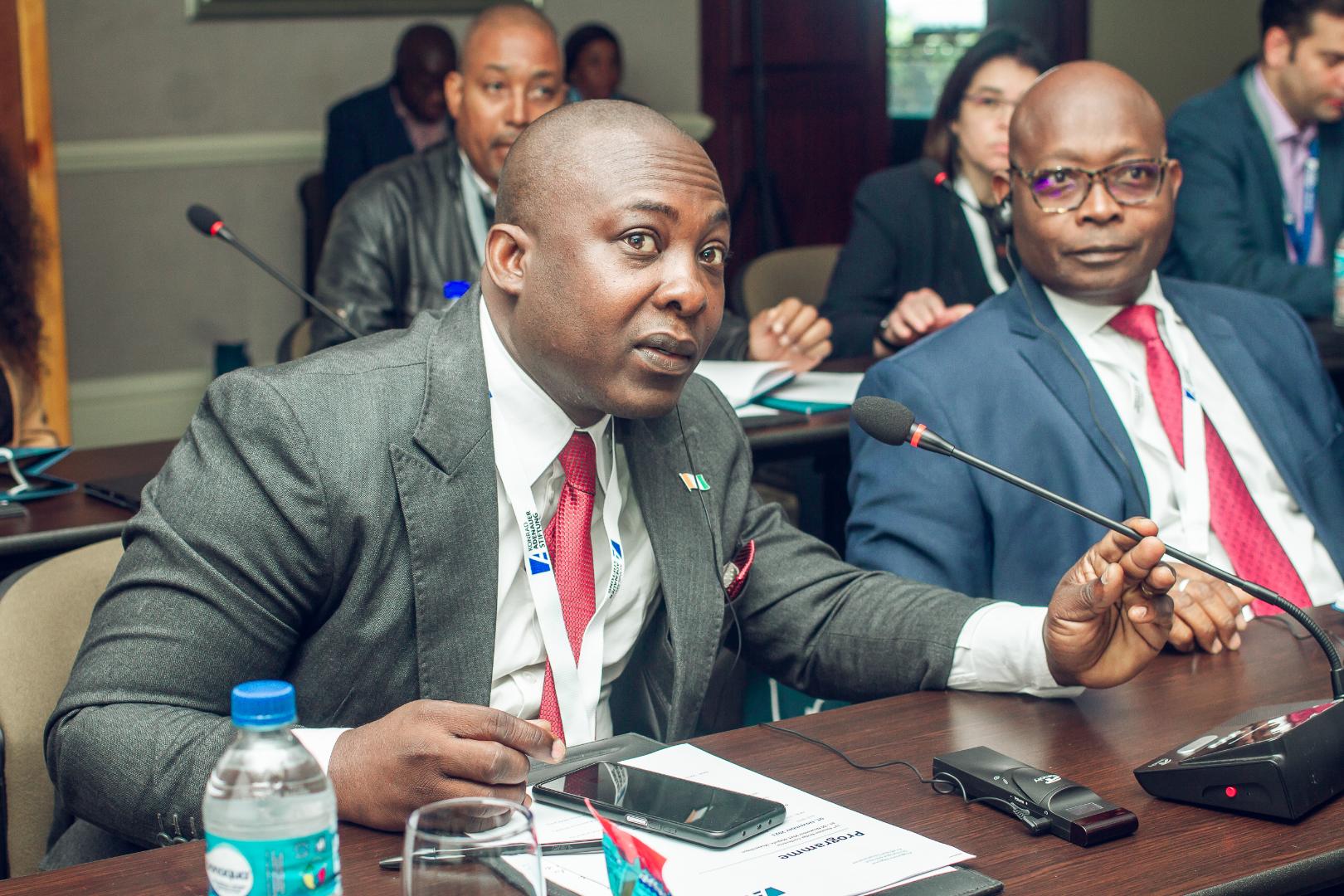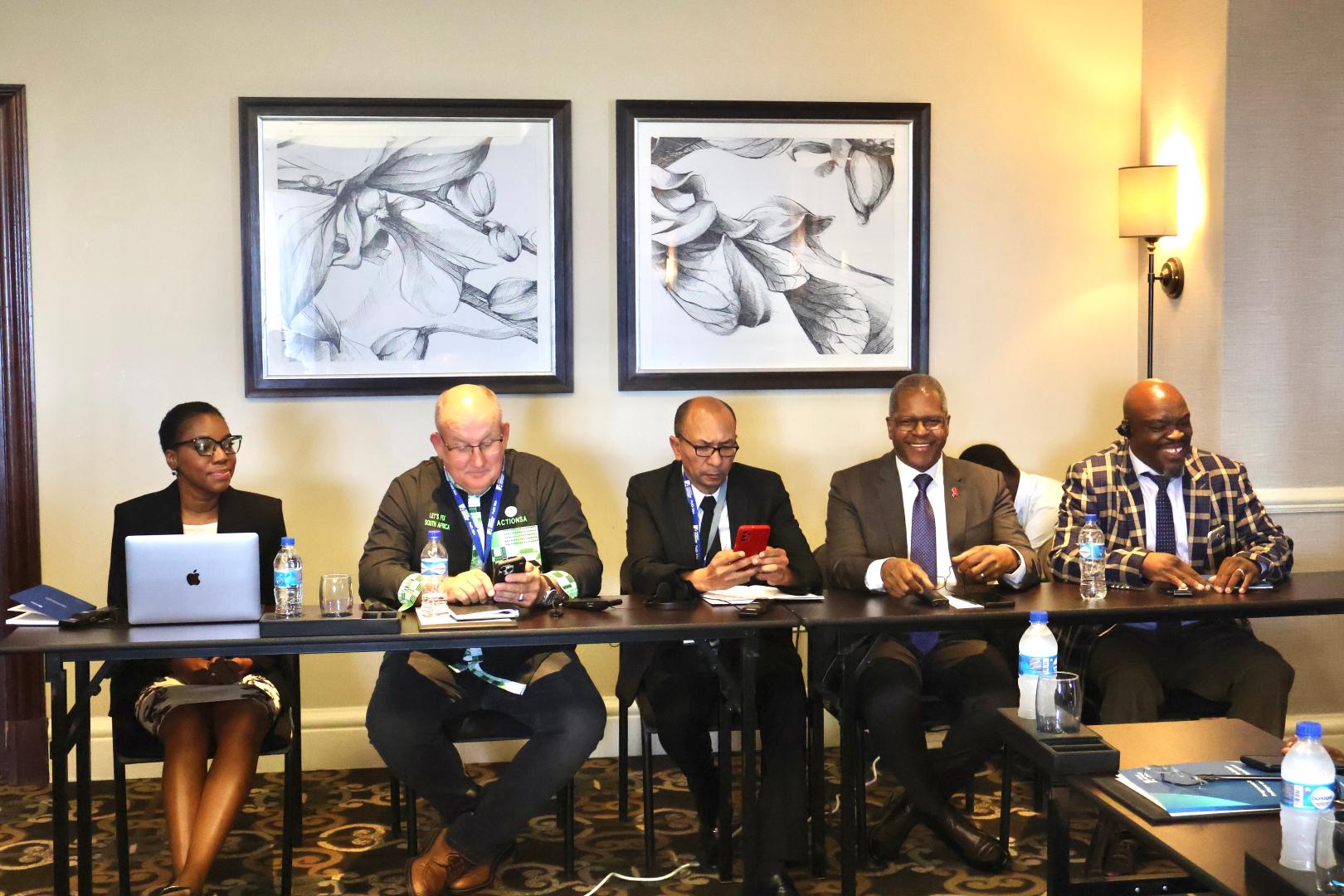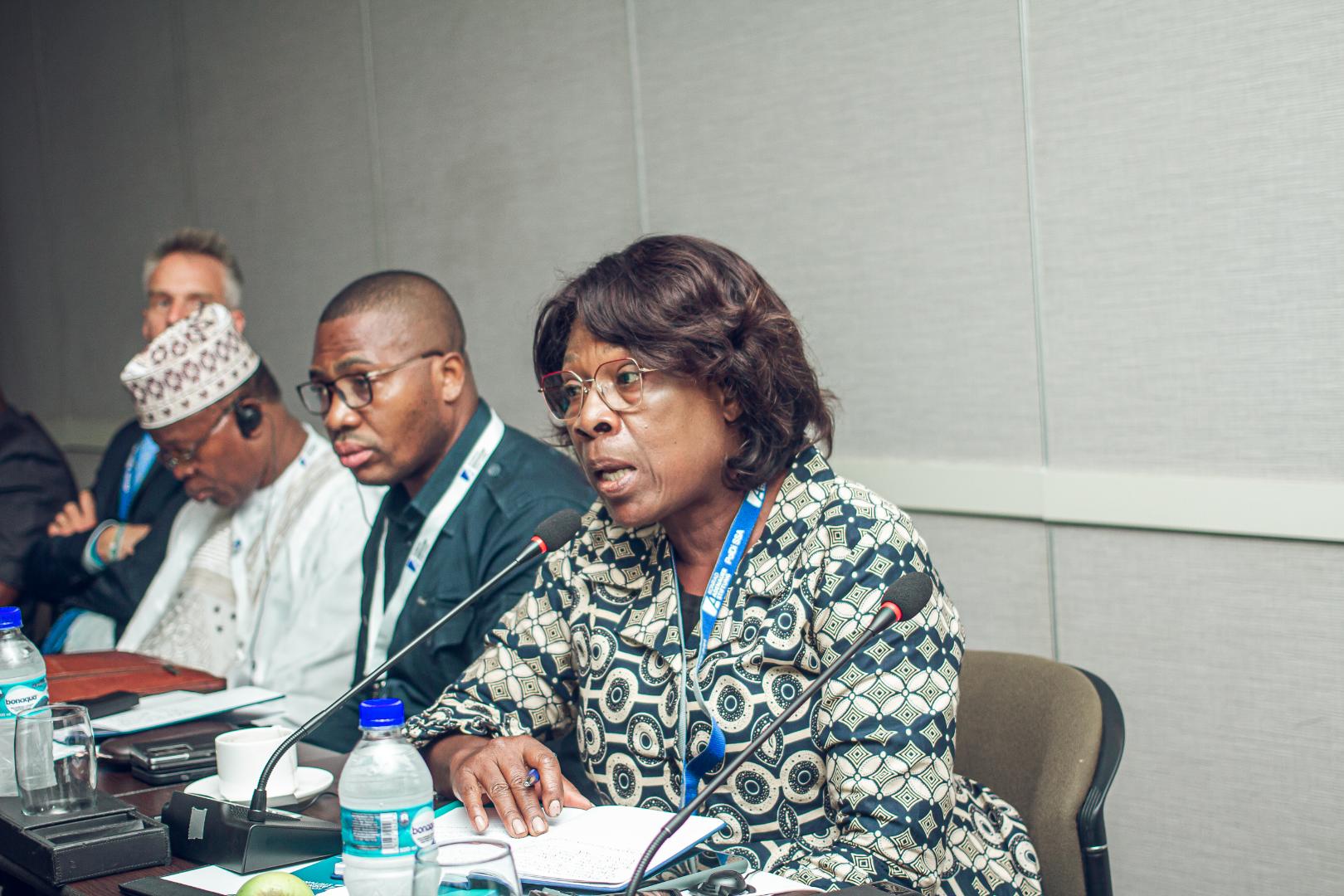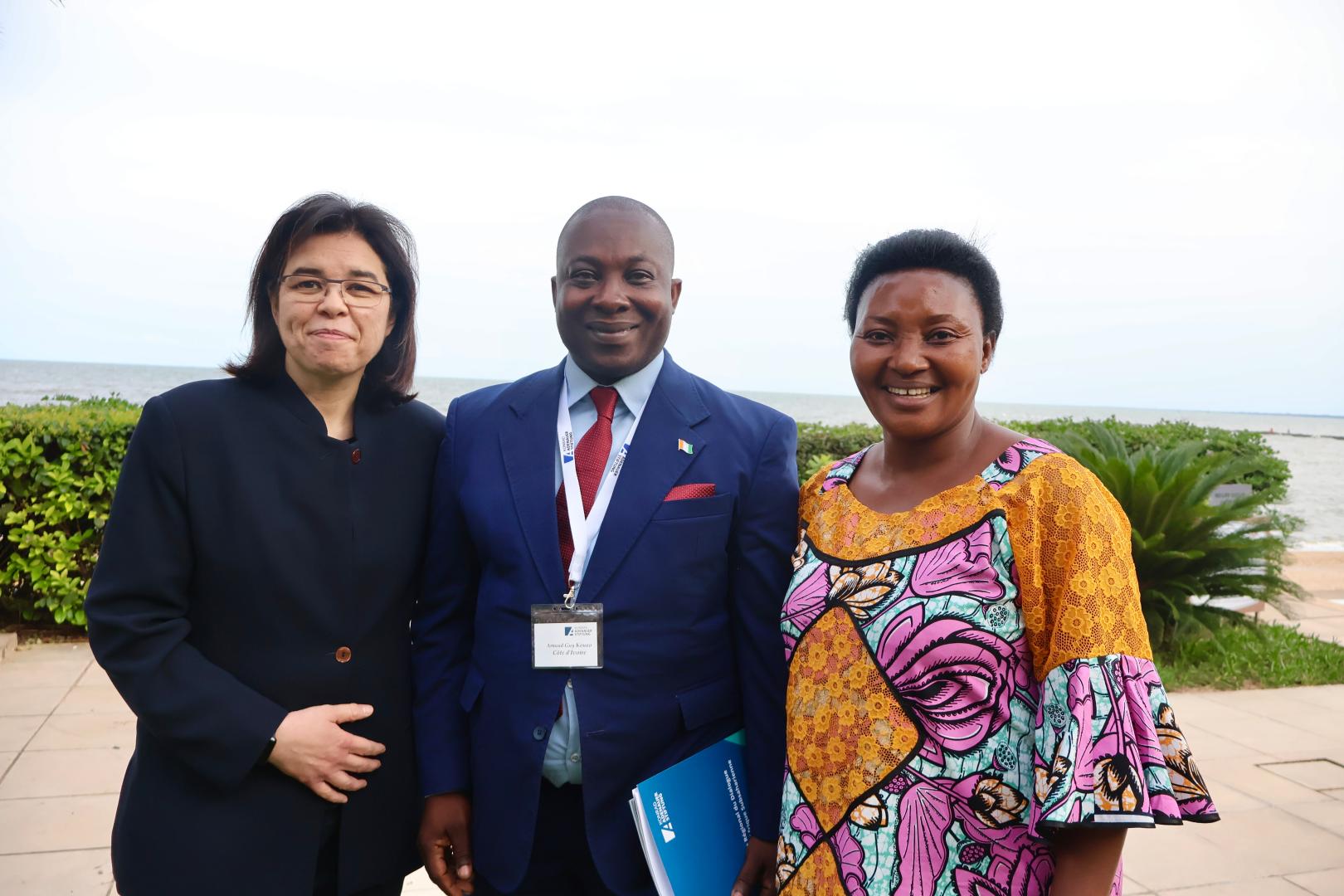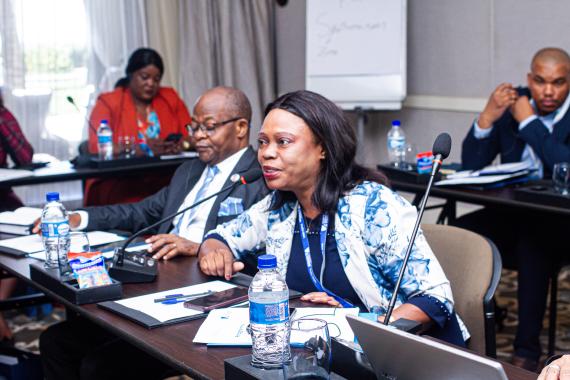The E-lection Bridge conference is one of the flagship activities of the Regional Programme – Political Dialogue for Sub-saharan Africa (PolDiSSA). The term "E-lection," a conjoin of electronic and election, encapsulates the essence of the engagements – to explore challenges, opportunities and best practices in electoral and democratic processes. The platform also serves to connect diverse experts and leading actors in political communication to share experiences for better-informed outcomes.
The E-lection Bridge conference is an annual convening, which has previously been held in Ghana, Tanzania, the Gambia, Namibia, Uganda, Botswana and most recently, Côte d'Ivoire. This year's edition was held in Maputo, Mozambique, from 02 – 05 November 2023, with over thirty-five local and international participants.
The opening ceremony featured remarks from Dr. Holger Dix, Director of the PolDiSSA programme, who shared on the underlying principles of the Konrad Adenauer Foundation and the importance of political parties in shaping democracies in Africa and globally. This was followed by speeches from representatives of the National Resistance Movement of Mozambique (RENAMO) and the Movimento Democrático de Moçambique (MDM) party, both members of the Democrat Union of Africa – the regional chapter of the international alliance of centre-right political parties.
One of the notable guests was Dr. Klaus Schüler, the former Director-General of the Christian Democrat Union (CDU), who has held several other portfolios in German politics. Dr. Schüler discussed the significance of getting elections right in Africa, highlighting challenges that some European countries have faced in automating elections and underscored the need for African-tailored solutions to challenges such as electoral fraud.
Thereafter, Prof. Eduardo Sitoe, Head of Political Science at Universidade Eduardo Mondlane in Maputo, presented on representative democracies. He analysed institutional and administrative procedures that govern the conduct of elections, including majoritarian, proportionate and mixed systems, which aroused curiosity regarding the most efficient and inviolable method. The first day ended with a campaign financing and funding workshop, exploring gaps and challenges for the ruling and opposition parties.
Day 2 started with a review of previous elections in Benin and Mozambique. Panellists reflected on immediate past elections in their respective countries and engaged the audience on strategies to mitigate shortcomings. Of equal importance were upcoming elections in Namibia, South Africa and the Democratic Republic of Congo (DRC). Presenters gave an overview of the political landscape, assessing, too, their party's level of preparedness.
In response to identified challenges of fairness, transparency and credibility across different geographic regions in Africa, Commissioner Olivia Mchaju Liwewe of the Malawi Electoral Commission (MEC) discussed electoral fraud. She noted that similar to an electoral process, electoral fraud can be a cycle, carefully planned with stages, either blatant or subtle, to change the people's will and distort election results. Another presentation by Dr. Thuynsma from the University of Pretoria explored recent trends in political campaigning, focussing on strategic communication such as positive messaging, artificial intelligence and targeting.
One of the programme's components were reflections on seminars and discussions as a method of evaluating relevance; participants shared feedback during and after the conference. Day 3 focussed predominantly on coalitions and cooperative governance. Dr. Schüler's 'Keeping Coalitions Together" seminar assessed progress, impediments and lessons from Germany. Thereafter, Professor Gumede from the Witwatersrand School of Governance presented on the 'Landscape of Coalitions in Africa,' emphasising that coalitions have been the most effective form of governance in Africa.
In addition to the expert lectures, KAS South Africa's Country Director, Gregor Jaecke, moderated a panel discussion on coalition management consisting of the multi-party charter members. Representatives of South African political parties, including Action SA, Inkatha Freedom Party (IFP), Build One South Africa (BOSA), Spectrum National Party (SNP) and the Independent Civic Organisation of South Africa (ISANCO), shared on how the charter will operate ahead of the country's national and provincial elections in 2024.
According to Good Governance Africa,[1] South Africa's sixth election in 2019 had an 8% decrease in overall voter turnout compared to 2014; only 49% of the voting-age population exercised their right to vote in 2019. Thus, seminars, including Dr. Thuynsma's on positive messaging and targeting, were indispensable. Overall, in many young democracies, elections are critical, with a significant impact not only on governance but the stability of the democracy, too. The E-lection Bridge Conference remains a platform for parties and individuals to share challenges, exchange ideas and explore possibilities for the localisation and operationalisation of democracy.
Moreover, the activity aims to establish and strengthen concrete collaborative actions and partnerships in promoting good governance with and within Africa, complimented by lessons and experiences from partners such as KAS.
[1] Enhancing Youth Engagement and Voter Participation in South Africa’s 2024 Polls, Good Governance Africa, 2023. https://gga.org/enhancing-youth-engagement-and-voter-participation-in-south-africas-2024-polls/
Topics
About this series
The Konrad-Adenauer-Stiftung, its educational institutions, centres and foreign offices, offer several thousand events on various subjects each year. We provide up to date and exclusive reports on selected conferences, events and symposia at www.kas.de. In addition to a summary of the contents, you can also find additional material such as pictures, speeches, videos or audio clips.




